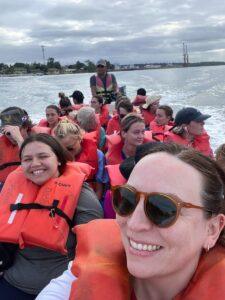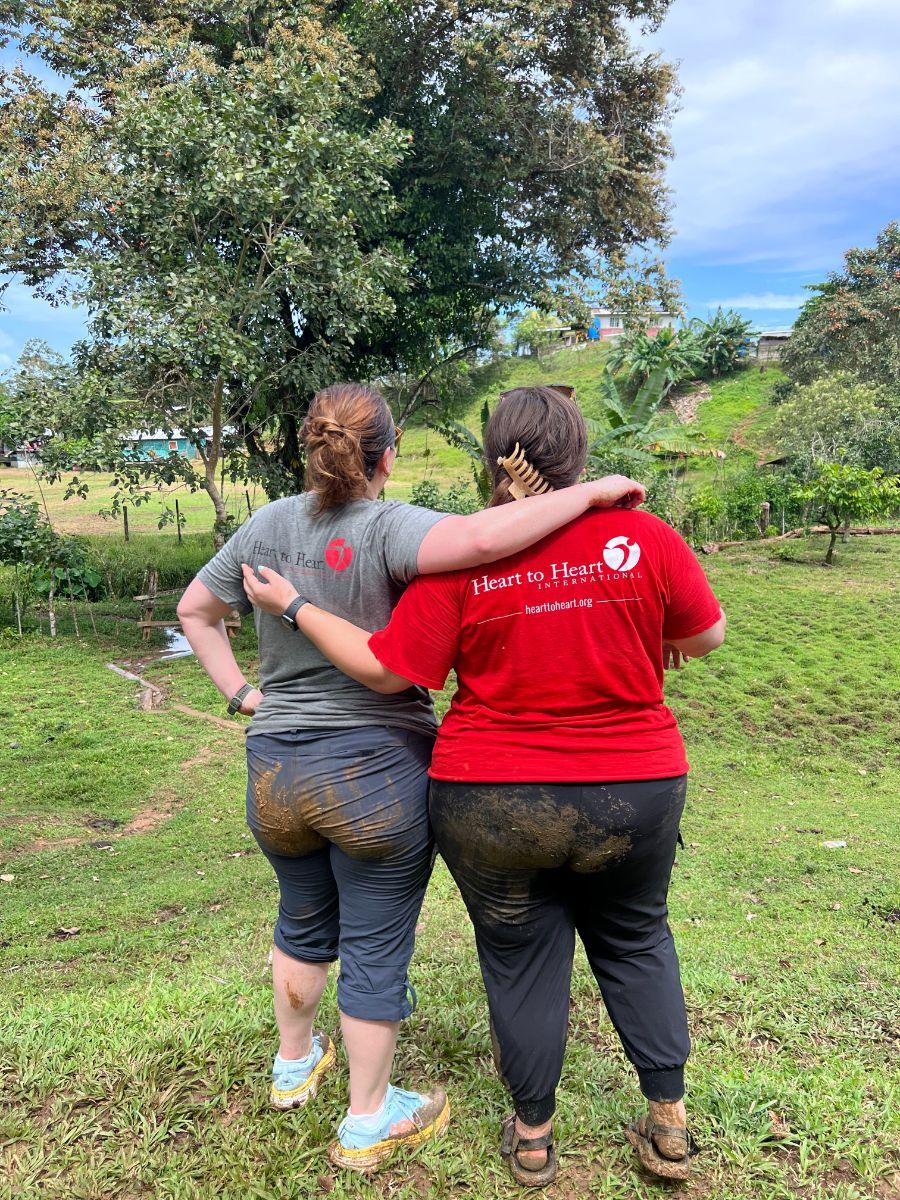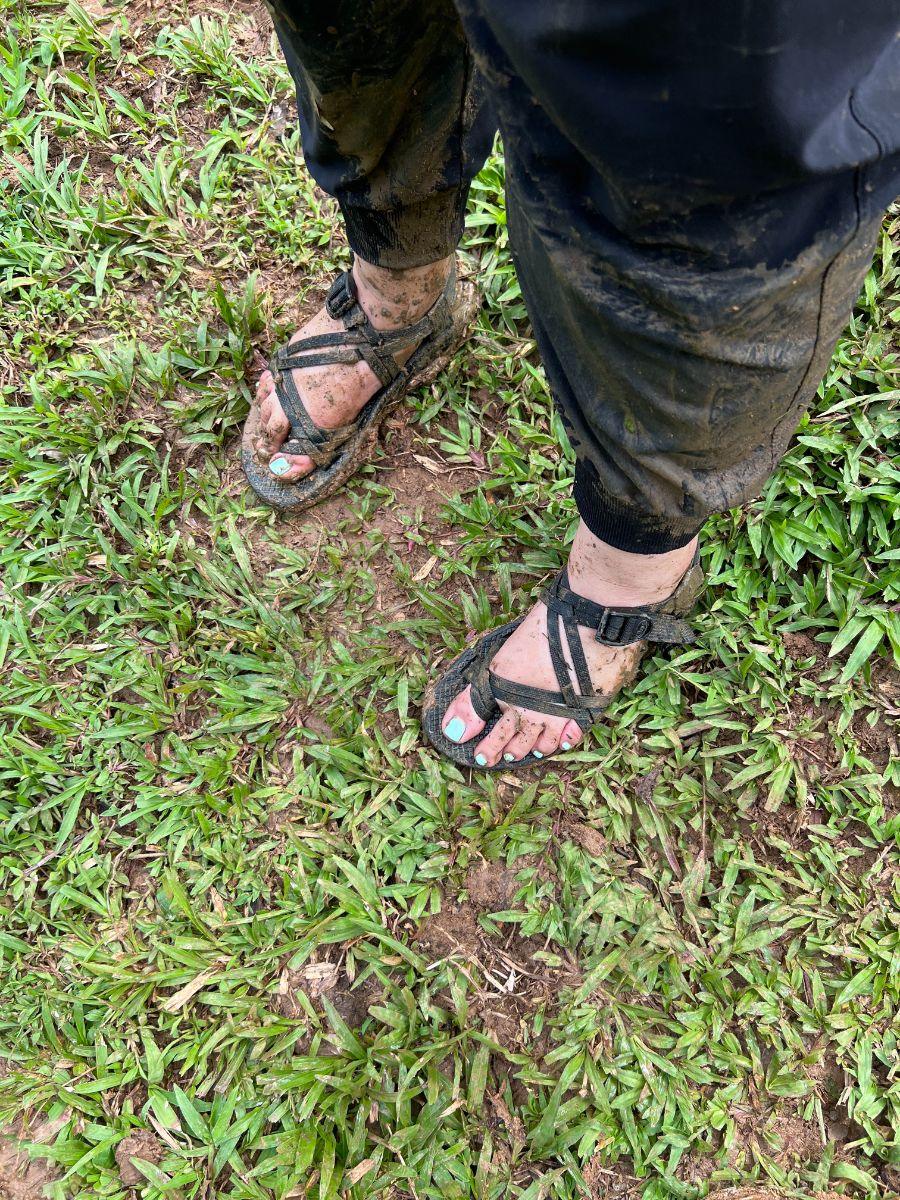Last month, Heart to Heart International’s Disaster Response Manager, Emily Schmidt (red shirt) and Partner Specialist, Abbey Stoetzel (grey shirt) traveled to Panama to visit with our longtime partner Floating Doctors.
Guest Post by Emily Schmidt, Manager of Disaster Response at Heart to Heart International
During HHI’s visit to Floating Doctors, we visited Valle Escondido, a community near Floating Doctors’ base of operations on San Cristobal Island. Many of Floating Doctors’ staff come from this small village, commuting by panga (small canoe type boat) each day to work. We visited this community to gain a better understanding of the area and why Floating Doctors’ work is so critical.
Valle Escondido has a population of about 500 people of indigenous descent. There are no vehicles, electricity or running water. There are no health services beyond what Floating Doctors provides on a regular basis.

Only a few steps into our trek, we realized that after an unseasonable burst of rain, the terrain was much muddier than expected. Abbey Stoetzel (HHI Partnership Specialist) took a tumble down a slippery incline. Thankfully she was not hurt; however, her shoes and clothing did not fare as well. Abbey was almost entirely covered in mud from the waist down, including her hands. Our host immediately asked a nearby resident if they would lend us some water to rinse off our hands. She generously agreed and scooped a bucket of clean water from her family’s supply.
We carried onward, sloshing through a field, over a stream and under a barbed-wire fence to reach our destination. Not far up the next incline, it was my turn to embarrass myself, slide down the hill and get covered in mud.
Shortly after my fall, not wanting to draw on this community’s scarce resource of clean water, I found some grass and attempted to wipe away the mud from my hands. I immediately regretted this decision as one of our hosts from Floating Doctors casually informed me “don’t be surprised if you get worms. It’s no big deal, we all get them around here. But those standing pools of water we sloshed through and the free roaming animals…”


It was time to head back to base and we walked toward the dock where our panga captain was to meet us. We could barely get out because the water levels were so unusually low for this time of year. Although it had recently rained, climate change has made rainfall unpredictable and tides lower and lower each year.
This not only affects many communities’ access to water for drinking, cooking, cleaning and bathing but also their means of transportation, access to markets and services (including healthcare), and ability to make a living. Fortunately, we managed to slowly work our way out of the mud and mangroves, back toward open water and the base of operations.
While this unplanned nature walk resulted in a charming photo opportunity, I later reflected on the difficulty in staying clean when water is a precious and scarce resource. Access to clean water is vital to maintaining good health and preventing illness and it is an everyday challenge for communities like Valle Escondido, all around the world.
Several days later, I did indeed suffer from severe gastro-intestinal distress. Thankfully, it was short lived, but there’s no telling if it was due to my irreverent wiping of muddy hands on some grass.
